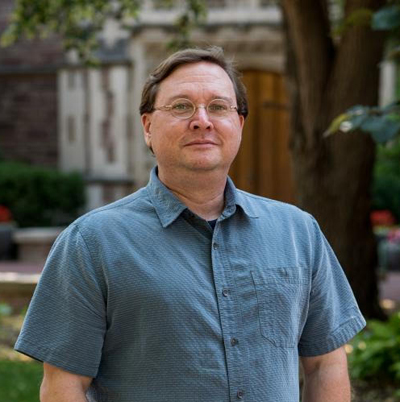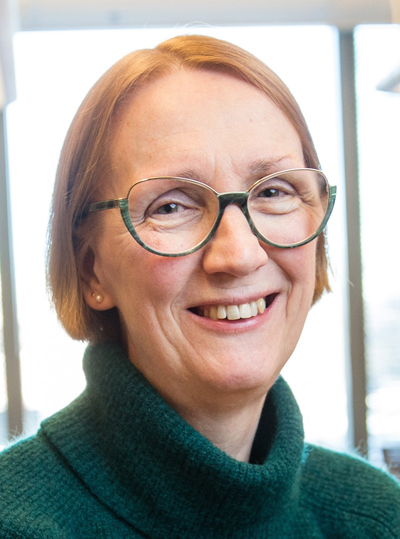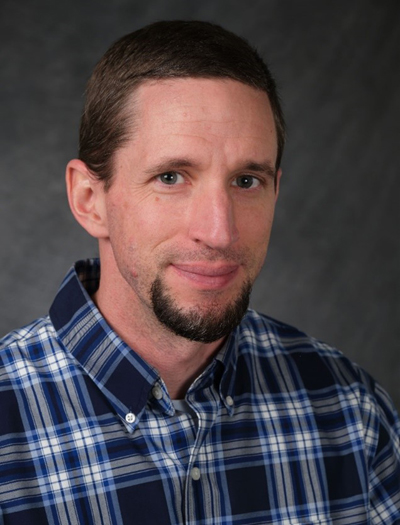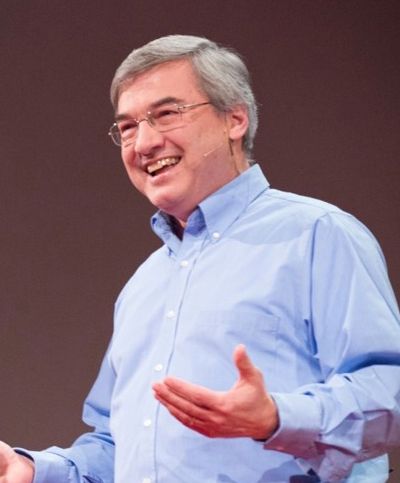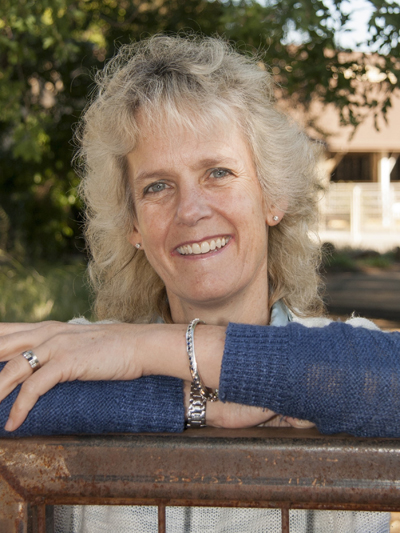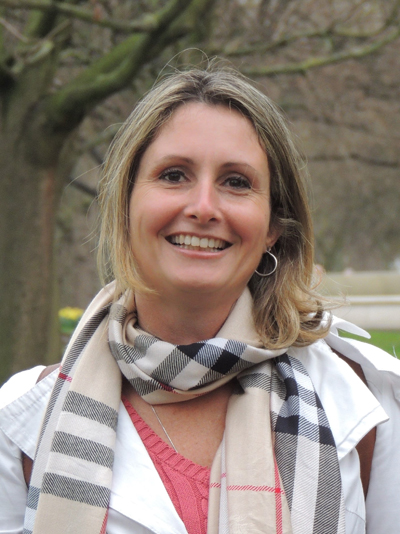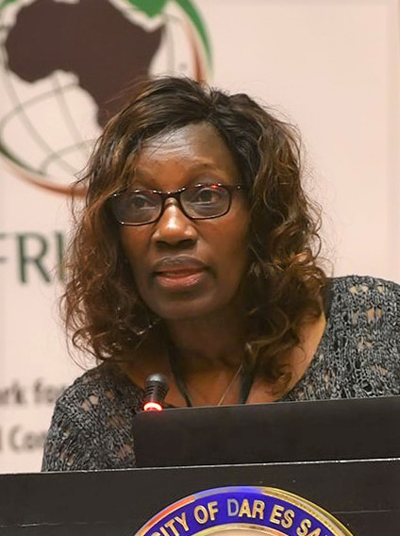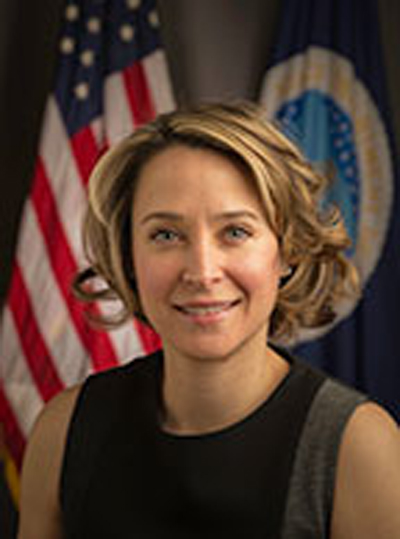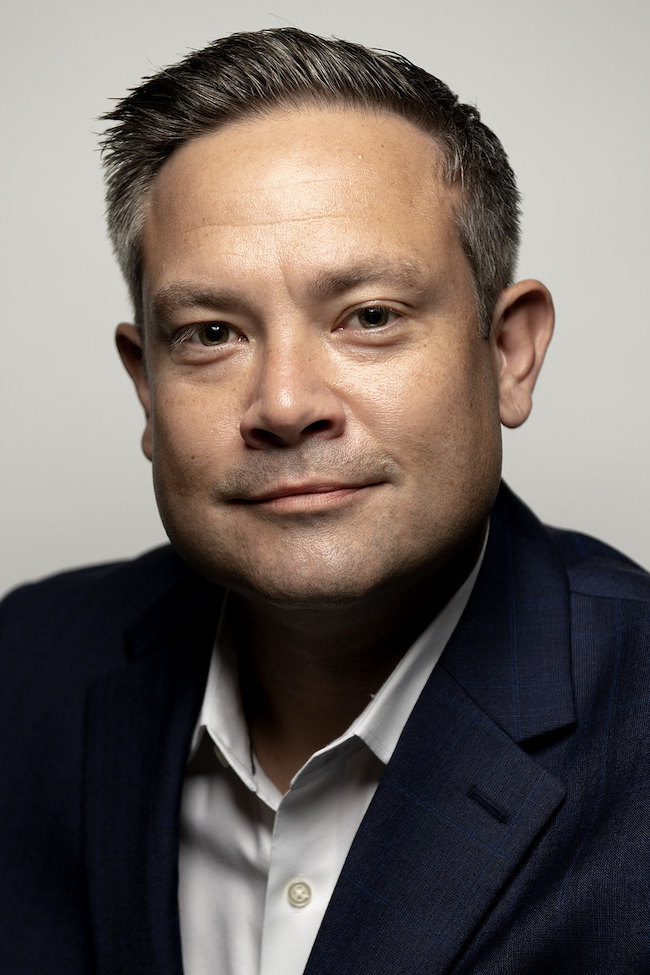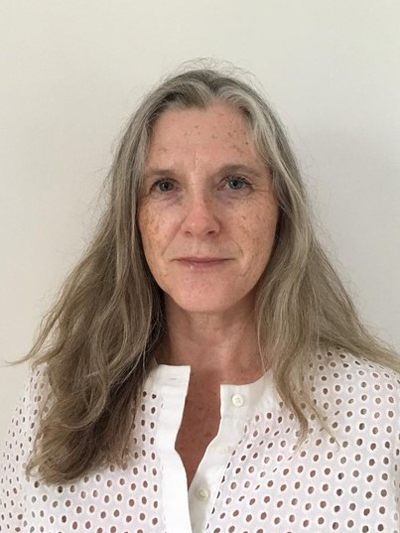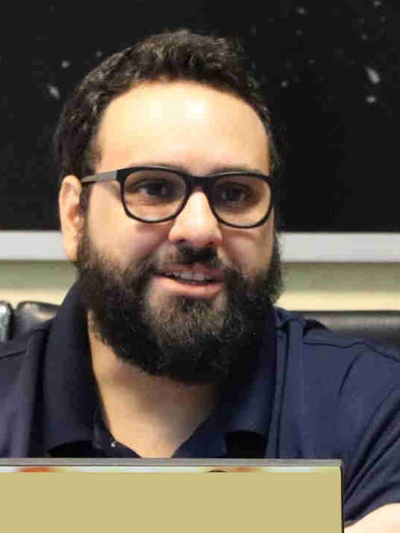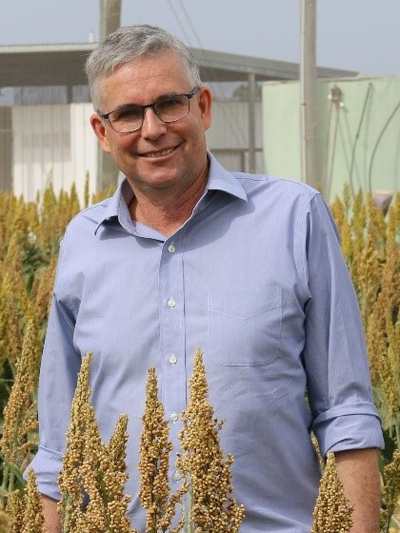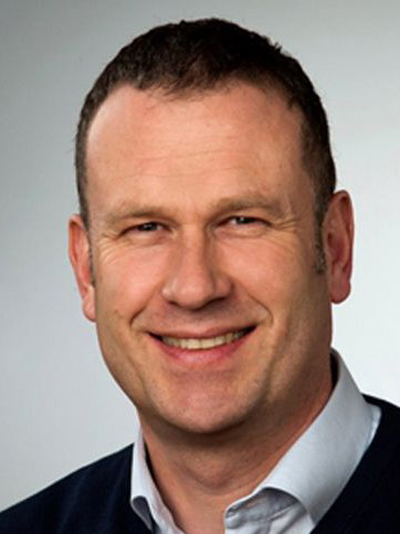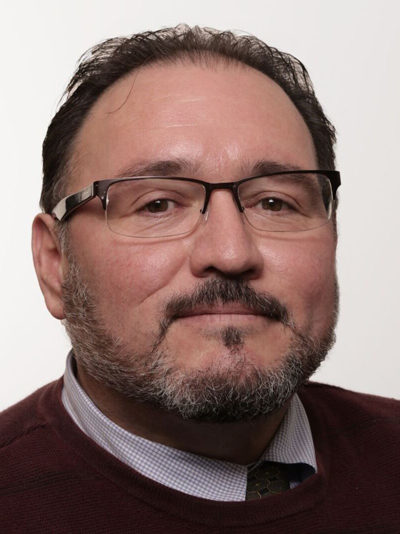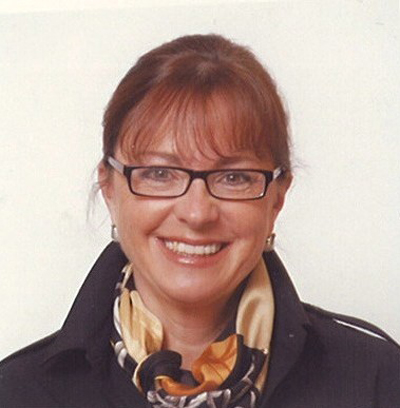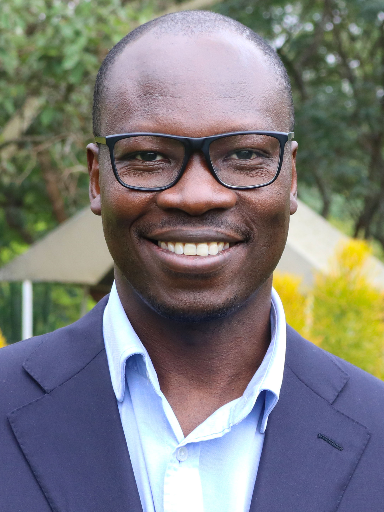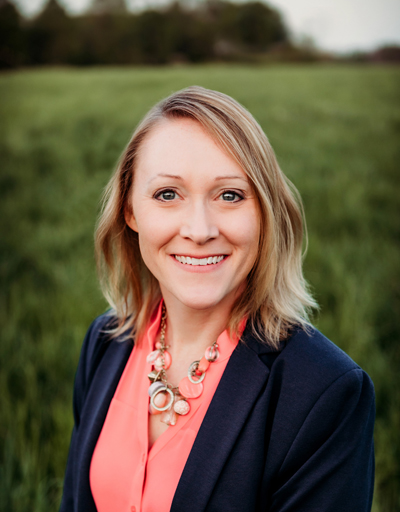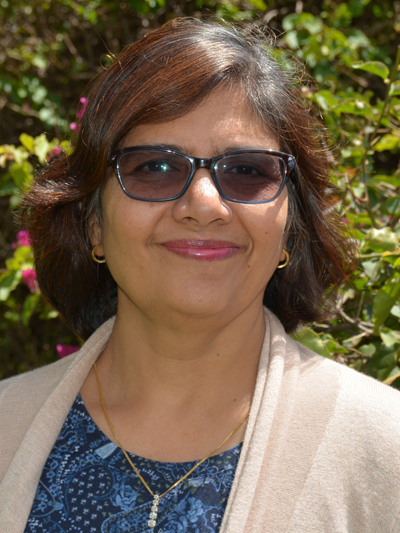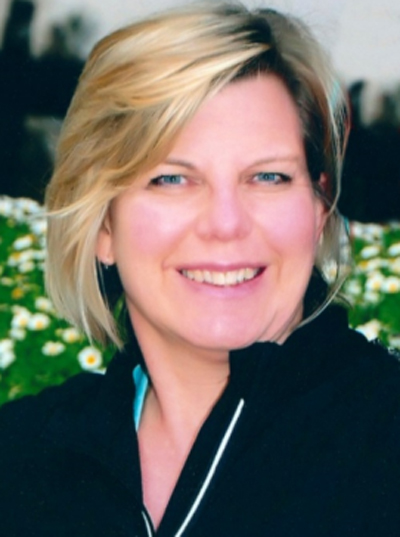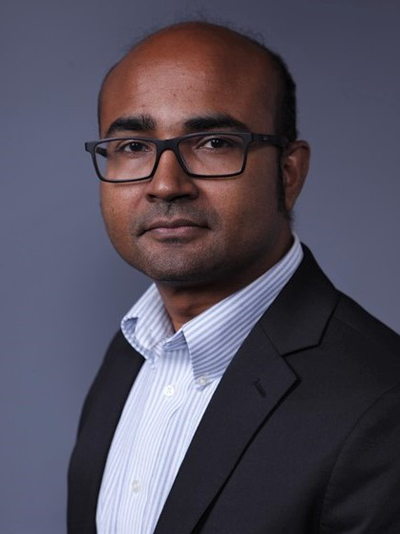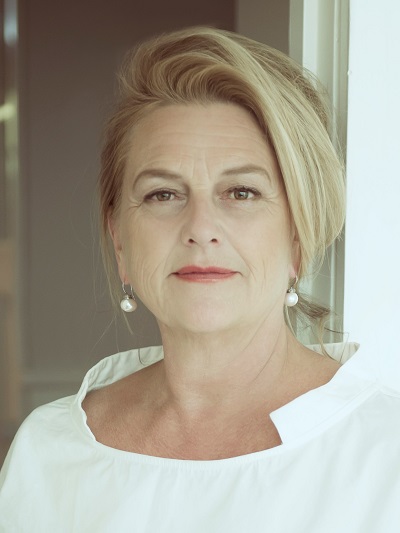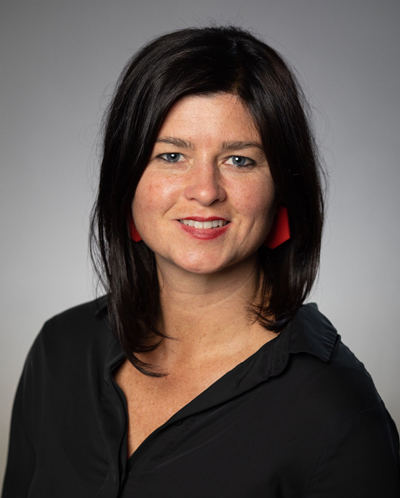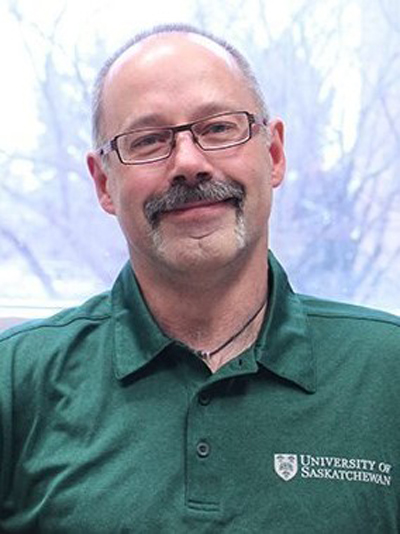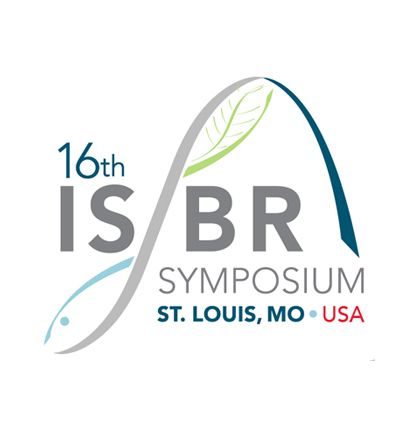Keynote Speakers
Dr. Joe Cornelius
CEO Gates Ag One, USA
As CEO of Gates Ag One, Joe sets a visionary and strategic course for their efforts to champion innovations and cultivate global networks that prioritize the needs of smallholder farmers. Joe began his career on a small, diversified family farm and has dedicated his professional life to improving the world through agricultural advancements. Most recently, he led efforts to strengthen agriculture’s adaptive capacity to climate change at the Bill & Melinda Gates Foundation, where he served as a director for its Global Growth and Opportunity Division. Joe brings to our team more than 30 years’ experience developing and launching new product inventions and has led breakthrough life-science research at multiple organizations including the Advanced Research Projects Agency in the U.S. Department of Energy. Joe holds a Ph.D. and M.Sc. in Plant, Soil, and Environmental Science, as well as an MBA in Technology Entrepreneurship.
Prof. Joseph Jez
Washington University in St. Louis, USA
Joe Jez is the Chair of Biology, Spencer T. Olin Professor, and a HHMI Professor at Washington University in St. Louis. Joe was an undergrad at Penn State (1992), received his Ph.D. at the University of Pennsylvania (1998), and was an NIH postdoctoral fellow at the Salk Institute (1998-2001). After working at Kosan Biosciences (2001-2), he started his group at the Danforth Plant Science Center (2002), and then moved to Washington University (2008). He has received a Presidential Early Career Award for Scientists and Engineers (PECASE), Phytochemical Society Neish Young Investigator Award, Fulbright Senior Specialist Award, and AAAS Fellow. Research in the Jez lab uses a combination of structural biology, protein chemistry, and plant science to understand biochemical pathways in plants and microbes with the aim of engineering these systems to address agricultural and environmental problems.
Dr. Jeantine Lunshof
Harvard Wyss Institute for Biologically Inspired Engineering, USA
Prof Jeantine Lunshof’s research interests are concerned with philosophical research ethics in the field of genomic sciences and biological engineering where disruptive technological innovations call for epistemological and normative exploration. She conducts her philosophical and ethical work as a full-time ethicist on the workfloor of the lab. At the Wyss Institute, she leads the implementation of the model of “Collaborative Ethics” across the field of Biologically Inspired Engineering. Focus areas are computer-designed programmable life forms like Xenobots and biobots, synthetic biology including genome recoding and organoid research, and organ-on-chip translational research that aims to bridge the gap between lab-based human model systems studies and human clinical trials.
Jeantine developed the innovative model of Open Consent for the Personal Genome Project, as a collaborator of George Church in the Harvard Medical School (HMS) Department of Genetics.
She is a member of the Faculty of the Harvard Medical School Center for Bioethics and teaches Responsible Conduct of Science at the Division of Medical Sciences at HMS. She is affiliated with the Broad Institute of MIT and Harvard, and the Edmond J. Safra Center for Ethics at Harvard University. Jeantine received her B.A. in Philosophy and Tibetan Language and Culture from the University of Hamburg, her M.A. in Philosophy and Health Law from the University of Amsterdam, and her Ph.D. from VU University Amsterdam. She was awarded a Marie Curie International Outgoing Fellowship (2013-2015) for the study of conceptual and normative questions in systems biology.
Dr. Sheila Ochugboju
Alliance for Science, USA
Dr. Sheila Ochugboju is a futurist, international development expert and communication specialist who has been working in research science and international development for more than 15 years. She most recently served as Head of Strategic Communications for the Africa Centres for Disease Control and Prevention (Africa CDC). In addition to senior management roles in Kenya, Ghana and Nigeria, she has worked with international think tanks, various United Nations agencies, multilateral institutions and philanthropic organizations across Europe, Africa and Asia. Sheila is an inaugural TED Africa Fellow and co-founder of Africa Knows, a knowledge management and media consultancy. She earned a Bachelor of Science in medical biochemistry and a Ph.D. in plant biochemistry from the University of London and completed a post-doctoral research fellowship in baculovirus expression at the University of Oxford. Sheila, who has four grown children, currently resides in London and will be relocating to Ithaca, New York.
Dr. Andrew Newhouse
SUNY, USA
Dr Andrew Newhouse has been working on projects that overlap the fields of conservation biology and molecular biology since 2003. Starting in 2007 he has worked with the American Chestnut Research & Restoration Project, at the State University of New York's College of Environmental Science & Forestry. This project has developed transgenic American chestnut trees that tolerate chestnut blight, a disease that nearly extirpated mature trees from their native range in the eastern USA. Andrew’s contributions to this project have ranged from molecular analyses to ecological comparisons, and his current focus is on the federal regulatory review process that is required before transgenic trees can be distributed or used for restoration.
Prof. Bill Powell
SUNY, USA
Dr William A Powell received his BS in biology in 1982 at Salisbury University, MD, and his PhD in 1986 at Utah State University studying the molecular mechanisms of hypovirulence in the chestnut blight fungus, Cryphonectria parasitica. He spent over two years as a postdoctoral associate at University of Florida researching transformation techniques using the fungal pathogen, Fusarium oxysporum. In 1989 he became a faculty member at the State University of New York’s College of Environmental Science and Forestry at Syracuse, NY, where he began collaborating with his colleague, Dr Charles Maynard, developing methods to transform American chestnut (Castanea dentata) and testing resistance enhancing genes, culminating in a blight-tolerant American chestnut tree. He has also worked with American elm, Ozark chinquapin, Allegheny chinquapin, hybrid poplar, and Arabidopsis. Dr Powell currently has over 70 publications and one patent. He teaches courses in Principles of Genetics, Plant Biotechnology, and How to Present Research to the Public.
Planery Speakers
Dr. Alison Van Eenennaam
Department of Animal Science, University of California, Davis, USA
Dr. Alison Van Eenennaam is a Cooperative Extension Specialist in the field of Animal Genomics and Biotechnology in the Department of Animal Science at the University of California, Davis. She received a Bachelor of Agricultural Science from the University of Melbourne in Australia, and both an MS in Animal Science, and a Ph.D. in Genetics from UC Davis. Her publicly-funded research and outreach program focuses on the use of animal genomics and biotechnology in livestock production systems. Her current research projects include the development of genome editing approaches for cattle. She has given over 700 invited presentations to audiences globally and uses a variety of media to inform general public audiences about science and technology. She frequently provides a credentialed voice on controversial scientific topics and has appeared on national media including The Dr Oz Show, NPR, Science Friday, and the Intelligence Squared debate series. She appeared in the 2017 documentary “Food Evolution” narrated by science-communicator Dr. Neil deGrasse Tyson. A passionate advocate of science, Dr. Van Eenennaam was the recipient of the CAST 2014 Borlaug and the ASAS 2019 Rockefeller Prentice Award in Animal Breeding and Genetics. Twitter: @BioBeef.
Ana Cristina Pinheiro
VP Regulatory Affairs FuturaGene, Brazil
With over 20 years of experience in a Global Chemical, agrochemical, seeds, and biotechnology-based company, Ana has wide experience of seeds and biotechnology regulation, governmental affairs, compliance, and stewardship. Ana has obtained commercial approval for more than 15 new events in corn, cotton, and soybeans by the Brazilian National Technical Biosafety Committee (CTNBio) and by the Paraguayan Forestry and Agricultural National Biosafety Committee (CONBio). She has managed initiatives on communications and educational programs related to best agronomy practices (Insect Resistance Management, Weed Resistance Management, and Application Technology) and led the implementation of the communication process, working directly with advertising and marketing agencies, developing special communications projects for internal and external audiences, digital communications strategies, events, and promotional activities. Ana holds an undergraduate degree in Technological Chemistry from the State University of Campinas and a graduate degree in Crop Protection from the Federal University of Viçosa, and in Biotechnology from the Federal University of Lavras. At FuturaGene, Suzano´s biotechnology division, Ana leads the Regulatory, Compliance, and Product Stewardship team in Brazil and the strategic planning and execution process to grant approval of new GM eucalyptus varieties in Brazil. She also participates in Suzano’s internal discussions on Sustainable Intensification and Forest Certification issues. Ana represents FuturaGene and its parent company, Suzano, in the Brazilian International Life Sciences Institute (ILSI) and CropLife Brazil.
Dr. Ann Kingiri
African Network for the Economics of Learning, Innovation and Competence Building Systems (AfricaLics), Kenya
Dr. Ann Kingiri is a Senior Research Fellow at the African Centre for Technology Studies (ACTS). She is a Science, Technology, and Innovation (STI) policy and development researcher with a focus on inclusive and sustainable development in Africa. She heads the STI Knowledge and Society (STIKS) program as a director. She is also the Secretary General of The African Network for the Economics of Learning, Innovation, and Competence Building Systems (AfricaLics). She is currently serving as a member of a new International Union for Conservation of Nature (IUCN) Task Force on Synthetic Biology and Biodiversity Conservation. She also serves as a member of the GeneConvene Global Collaborative Advisory Board under the Foundation for the National Institute of Health (FNIH), USA. Ann is also serving as a non-executive director of Kenya Climate Innovation Centre (KCIC). She is visiting research and academic fellow at the University of Johannesburg, South Africa, and Jaramogi Oginga Odinga University of Science and Technology (JOOUST), Kenya. Ann holds a BSc degree in Agriculture and an MSc degree in Plant Pathology both from the University of Nairobi, Kenya; A Master’s degree in Biosafety in Plant Biotechnology from Mache Polytechnic University, Ancona, Italy, and a Ph.D. degree from the UK in Development Policy and Practice discipline focusing on new biosciences policy.
Bernadette Juarez
Biotechnology Regulatory Services, USDA, USA
Bernadette Juarez was appointed Deputy Administrator for USDA’s Biotechnology Regulatory Services in August 2019. In this role, she provides leadership and direction to ensure the safe development and introduction (importation, interstate movement, and field testing) of organisms developed using genetic engineering. Prior to this appointment, Ms. Juarez served as Deputy Administrator for Animal Care since 2016, where she led the program’s many employees in protecting and ensuring the welfare of millions of animals nationwide that are covered under the Animal Welfare Act (AWA) and the Horse Protection Act (HP). Ms. Juarez previously served as Investigative and Enforcement Services’ Deputy Director beginning in 2009, and then as Director starting in 2013, where she led investigations of alleged violations involving APHIS-administered laws and pursued enforcement actions where warranted. Ms. Juarez was a trial attorney in USDA’s Office of the General Counsel from 2002 to 2009. In 1999, Ms. Juarez completed her bachelor’s in business administration from the University of New Mexico. She went on to earn her juris doctor from American University, Washington College of Law, in 2002.
Brandon R. McFadden
Department of Agricultural Economics and Agribusiness at the UArk, USA
Brandon R. McFadden is a Professor and the Tyson Chair in Food Policy Economics in the Department of Agricultural Economics and Agribusiness at the University of Arkansas. He uses experimental economic methods to study food choices and shed light on consumer perceptions about agricultural production methods, and behavioral economic concepts to understand how consumer perceptions and food choices are formed. His work has been published in disciplinary journals like Food Policy, Applied Economic Perspectives and Policy, Food Quality and Preference, and the American Journal of Agricultural Economics. He also publishes work in multidisciplinary journals like Trends in Biotechnology, The FASEB Journal, and Biotechnology Journal
Dr. Camilla Beech
Cambea Consulting Ltd, UK
Camilla Beech is currently the Director of her regulatory consultancy business specializing in novel biotechnology products and particularly genetically modified insects. For more than 30 years she has been involved in the forefront of contributing to policy, guidance, regulation, and risk assessment for genetically modified organisms, including GM crops and other products. In the last decade, she has specialized predominantly in obtaining regulatory outcomes for genetically modified insects for both agriculture and public health including obtaining permission for use of genetically modified mosquitoes at the contained, field, or area-wide levels. She has also been a faculty member of training courses on GM vectors (funded by WHO-TDR) in Latin America, Africa, and SE Asia and is currently a member of the WHO Vector Control Advisory Group. Prior to setting up her own business in 2015, she led the biotechnology regulatory affairs department at Oxitec Ltd and was a global regulatory lead at Syngenta (and its legacy companies). She is currently working on projects covering the Nagoya protocol for shipment of insects and impact assessments for gene drive mosquitoes for a variety of clients. Having managed various regulatory portfolios and compliance programs for a variety of biotechnology products worldwide she has a deep understanding of the attributes required for their safe use and efficacy.
Prof. Danilo Fernández Ríos
National University of Asunción, Paraguay
Danilo Fernández Ríos has a degree in Science (Biology) from the National University of Asunción. He did his postgraduate studies in Biological Sciences (Genetics) at the Federal University of Rio de Janeiro, working with plant molecular genetics. He has a postgraduate diploma in Biotechnology, Industries and Business from the National University of Quilmes. He also has a Diploma in Science, Technology and Society CTS from the National Council of Science and Technology (CONACYT-Paraguay). He was a technical advisor in the curricular design of the Biotechnology Degree at the National University of Asuncion and later coordinator of that degree. He has been the coordinator of the Ad Hoc group of Safety Evaluation of the Agricultural Biosafety Commission of the Ministry of Agriculture and Livestock. He has been a referee for specialized journals in the agricultural area and has directed undergraduate and postgraduate theses on subjects related to biotechnology. He has published in international indexed scientific journals. His work is mainly related to biotechnology and agri-food safety. He is a categorized researcher of the National Program of Incentive to Researchers (PRONII-CONACYT). He is currently a research professor at the National University of Asunción and a professor of Molecular Cell Biology, Genetics and Biosafety of Biotechnology at the same university. He also serves as Scientific Advisor in Biotechnology and Biosafety for the National Commission of Agricultural and Forestry Biosafety of the Ministry of Agriculture and Livestock.
Prof. Ian Godwin
Centre for Crop Science, University of Queensland, Australia
Professor Ian Godwin has over 30 years of experience in plant biotechnology research, first undertaking sugar beet genetic engineering at Birmingham University in the UK in the 1980s. He joined the University of Queensland in 1990, holding an academic position in plant molecular genetics. In 2019 he joined the UQ research institute, QAAFI as Director of the Centre for Crop Science. He leads research in the use of biotechnological tools for crop improvement, with emphasis on the sustainable production of grain crops. A major focus is on the improvement of crops for food, feed and bio-industrial end-uses. He has pioneered the use of GM and gene-edited techniques in sorghum. Research projects include international collaborations with a focus on food security and plant genetic resource conservation with collaborators in Germany, Denmark, the United States, China, Ethiopia and Pacific Island countries. From 2011-2016 he served on the Genetic Technology Technical Advisory Committee for the Australia Office of the Gene Technology Regulator. He is passionate about the public communication of science and has spoken at many public events on genetics, GM plants and food, animal cloning, and the future of agriculture in a changing climate. In 2003 he was an ABC Science Media Fellow and has appeared on television, radio and online on numerous occasions. His popular science book Good Enough to Eat? Next Generation GM Crops was published by the Royal Society of Chemistry in 2019. In 2021 he was awarded the Australian Medal of Agricultural Science by the AGInstitute.
Dr. Joerg Romeis
Agroscope, Switzerland
Dr. Joerg Romeis heads the Biosafety Research Group at Agroscope in Zurich, Switzerland. Agroscope is the Swiss center of excellence for agricultural research and is affiliated with the Federal Office for Agriculture. In addition, he is a lecturer at the University of Bern and an adjunct professor at the Institute of Plant Protection of the Chinese Academy of Agricultural Sciences in Beijing. Joerg holds an MSc and Ph.D. in biology and was trained as an applied entomologist with a focus on biological pest control and multi-trophic interactions. He has more than 17 years of experience in the risk assessment of genetically modified (GM) crops and in particular in the design and execution of non-target laboratory studies. His research has focused on the effects of insect-resistant GM plants, such as Bt maize and cotton, on arthropod herbivores and their predators and parasitoids. More recently, he is also studying the non-target effects of RNAi-based GM plants. In addition to primary research, Joerg has been actively involved in defining operational environmental protection goals, and in developing guidelines for risk assessment and non-target testing.
Dr. José Falck-Zepeda
International Food Policy Research Institute (IFPRI), USA
José Falck-Zepeda is a Senior Research Fellow at IFPRI. His work at IFPRI focuses on the economics and impact assessment of biotechnology, biosafety and emerging technologies. In addition, José focuses on agricultural R&D policy and technological innovation in developing countries. Prior to joining IFPRI, Dr. Falck-Zepeda worked as a Research Fellow at the International Service for National Agricultural Research (ISNAR) in The Hague, the Netherlands. He also was a Post-Doctoral Research Fellow at Auburn University, Alabama, and Assistant Professor and an Instructor at the Pan-American Agricultural School (Zamorano University) in Honduras. A citizen of Honduras, he holds an Agrónomo Degree from Pan-American Agricultural School (Zamorano University), a BS degree (Animal Science) from Texas A&M University, and MS and Ph.D. in Agricultural Economics from Auburn University, Auburn, Alabama.
Dr. Judy Chambers
Executive Director for the Program for Biosafety Systems at the International Food Policy Research Institute (IFPRI, a CGIAR Center), USA
Dr. Judith A. Chambers’ international team supports interested partner countries in Africa and Asia on the technical development and implementation of evidence-based biosafety systems and independent decision making for the use of precision genetics to support innovative agriculture research and products. She began her professional journey with a Ph.D. in Molecular Biology (1986) from the University of Pennsylvania where she studied the molecular action of various animal viruses related to HIV. Her post-doctoral studies were conducted at an entrepreneurial biotech company, where she focused on agriculture applications and specifically on the molecular characterization of Bt genes (CryIF) for insect pest control. For the next 2 decades, she served in various public and private sector positions where she developed and managed initiatives to ensure that the opportunities of biotechnology could be applied to the agriculture issues facing many developing countries. Notably, she served as the Senior Biotechnology Advisor at USAID and co-developed the first public-private sector initiative on agriculture biotechnology to support developing country agriculture needs. At a former private agriculture biotechnology company, she served as Director for International Government Affairs and supported the company’s philanthropic efforts to share its proprietary technology with resource poor, small scale farmers who work every day to bridge the food security gap. In summary, Dr. Chambers has devoted her entire career ensuring that the technical and policy systems are in place to expand farmer choice and technology access. Her long history of involvement with agriculture biotechnology and development has provided her with a reflective global insight on how evidence-based decision making supports agricultural genetic innovations on behalf of resource poor farmers and consumers.
Dr. Julius Ecuru
BioInnovate Africa, International Centre of Insect Physiology and Ecology (icipe), Kenya
Dr. Ecuru is an interdisciplinary scientist and researcher. He works on issues related to technological innovation and industrial competitiveness in Africa. His focus is on the theory and practice of sectoral and regional innovation systems, innovative clusters and innovation policies (especially in health, agriculture and environment) that foster sustainable development. Dr. Ecuru also contributes to scholarly works in the chemical and bioengineering sciences and supports regulatory science and research ethics capacity development. His current research interests include interactive learning models, which make universities, firms, and related organizations more productive and catalytic mechanisms for innovation, growth, and social development. He served as Assistant Executive Secretary of the Uganda National Council for Science and Technology in charge of research development and innovation prior to joining icipe as head of BioInnovate Africa. He received his B.Sc (Chemistry) Honors and M.Sc in Environmental Science from Makerere University, Kampala, and a Ph.D. in Technology/Technoscience Studies (Innovation and Development) from the Blekinge Institute of Technology, Sweden. Dr. Ecuru is also a Fogarty Bioethics Fellow having received a postgraduate diploma in International Research Ethics from the University of Cape Town, South Africa.
Dr. Keri Carstens
Jord BioScience, USA
Dr. Keri Carstens is Chief Operating Office for Jord BioScience, where she leads Jord’s product development, operations and commercial efforts. Keri grew up on a farm, continues to farm, and has devoted her career to delivering safe, sustainable solutions that benefit farmers globally. Prior to Jord, Keri spent 14 years at Corteva Agriscience, where she led global regulatory strategy, served on the leadership team to build and launch Corteva’s seed applied technologies and biologicals businesses, and held key roles in regulatory science and program management. In 2019 she was recognized as a Laureate in Corteva’s R&D organization, one of the company’s highest honors for scientists. She is a recognized industry leader, having served as Chair of the American Seed Trade Association’s Seed Treatment & Environment Committee, and served in steering roles for the Honey Bee Health Coalition and Entomological Society of America. In addition, Keri holds adjunct graduate faculty status at Iowa State University, where she mentors graduate students and co-teaches in regulatory toxicology and pesticides courses. Keri grew up on a farm near Grinnell, Iowa, and earned her B.A. in Biology and Education from Wartburg College, and her M.S. and Ph.D. in Toxicology and Entomology from Iowa State University. She and her husband, Jeff, have three daughters and the family enjoys their small farm that includes row crops and pollinator habitat outside of Ames, IA.stgraduate diploma in International Research Ethics from the University of Cape Town, South Africa.
Dr. Leena Tripathi
Eastern Africa Hub, International Institute of Tropical Agriculture (IITA), Dar es Salaam, Tanzania
Dr. Leena Tripathi is a Plant Biotechnologist with experience in the genetic improvement of important staple food crops to control diseases and pests. She is the Director for Eastern Africa and Leader of the Biotechnology research group at the International Institute of Tropical Agriculture (IITA). She also provides science leadership as a faculty member of various institutions, such as Adjunct Professor at the University of Queensland, Australia and Faculty member of BecA/ILRI hub, and Support Leader for the CGIAR Research Program Root, Tubers and Banana (CRP-RTB). She is serving as Editorial Board Member for Plant Biotechnology Journal, Communication Biology, Frontiers in Genome Editing, Scientific Reports, and Plant Cell Reports. Besides, she is also an active member of many scientific societies and serving as a GMO expert. Her scientific contributions have been recognized internationally through several awards and honors, such as excellence awards for outstanding scientist and publications. She has been honored as an elected fellow of the American Association for the Advancement of Science (AAAS) for contributions to Agriculture. After obtaining a Ph.D. in Plant Molecular Biology, she began her career as a Research Scientist at the University of North Carolina, USA. After that, she has worked for over 21 years at IITA in Nigeria, Uganda, Kenya, and Tanzania. She has been promoted through the ranks to her current position as the Eastern Africa Hub Director. Her team has successfully established a robust genetic transformation platform for the banana and yam at IITA to develop genetically modified and genome-edited products and transfer these technologies to national agricultural research systems in Africa and beyond. Her group's research outputs have been published in about 100 articles in refereed journals with high impact factors like Nature Biotechnology or book chapters. Her research has been featured in more than 200 national and international news articles and documentary films like CNN- Earth's Frontiers and Food Evolution.
LouAnn Burnett
Sandia National Laboratories, USA
LouAnn Burnett, MS, CBSP (ABSA) has been a member of the Global Chemical and Biological Security Program at Sandia National Laboratories in Albuquerque, New Mexico, USA for twelve years. She spent 17 years as a university biosafety program manager (University of Illinois at Urbana-Champaign, Vanderbilt University). LouAnn’s work at Sandia focuses on strengthen biorisk management systems and building human capacity to support biorisk-informed decision-making. LouAnn holds an M.S. in Biology and is a Certified Biological Safety Professional. LouAnn is the immediate Past President of ABSA International (formerly the American Biological safety Association) where she also served as President in 2012 and in 2022 and received the ABSA Everett Hanel, Jr. Presidential award in 2003. She has authored numerous papers on biosafety, biosecurity, biorisk management training, and biosafety program management. In 2012, LouAnn was selected as an Outstanding Women at Sandia and was recently honored with a Sandia Employee Recognition Award for her work in mentoring trainers.
Dr. Muthukumar Bagavathiannan
Texas A&M University, USA
Dr. Muthukumar Bagavathiannan is an Associate Professor of Weed Science & Agronomy at the Department of Soil and Crop Sciences, Texas A&M University, College Station, TX. He received BSc (Agriculture) and MSc (Agronomy) at Tamil Nadu Agricultural University, Coimbatore, India; MSc in Plant Genetic Manipulation at the University of Nottingham, England; Ph.D. in Weed Ecology at the University of Manitoba, Canada; and postdoctoral training at the University of Arkansas, USA. Dr Bagavathiannan’s research interests fall within the broader area of Weed Science and Agronomy, with particular emphasis on weed ecology and integrated management. Crop-wild relatives, gene flow, and their management is an important research focus area. These research activities have provided practical solutions for gene flow mitigation and novel trait confinement in agricultural landscapes. He takes an inter-disciplinary approach by collaborating broadly at local, regional, national, and international levels. Dr. Bagavathiannan has published over 90 peer-reviewed journal articles, 10 book chapters and several outreach bulletins. He has mentored/mentoring 25 graduate students, 7 postdoctoral researchers, and 12 visiting scholars. He serves as an Associate Editor for Weed Science (Weed Science Society of America) and Crop Science (Crop Science Society of America) journals. Dr. Bagavathiannan was the recipient of the 2021 Southern Weed Science Society Outstanding Early Career Scientist Award; the 2020 Weed Science Society of America Outstanding Early Career Scientist Award; and the 2019 Vice Chancellor’s Outstanding Early Career Research Award as well as the 2018 Dean’s Outstanding Early Career Research Award from the College of Agriculture and Life Sciences, Texas A&M University.
Prof. Patricia Osseweijer
Delft University of Technology, Netherlands
Professor Patricia Osseweijer leads the Biotechnology and Society Section at the Delft University of Technology in the Faculty of Applied Sciences. Her drive is to link technological innovation in sustainable production and water systems with societal development for a sustainable and circular (bio)economy, linking with Sustainable Development Goals. With her multidisciplinary group, she works on methodology for social impact assessment, design of novel value chains focusing on integral impact assessment, inclusive innovation, social sustainability, public perceptions, communication and ethics. In 2015 she received the (NL) Royal Academy distinguished Lorentz fellowship for integrating social sciences & technology. Patricia is University Ambassador Brazil, advisor to the TU Delft President and coordinator of the 19 M Euro EU-Horizon2020 funded Water Mining program in which 38 public-private partners develop demonstrations on nutrient recycling and water recovery for circular water management in several venues in Europe.
Dr. Sarah Evanega
Pairwise, USA
Sarah serves as the lead for stakeholder communication at Pairwise—a food and tech company committed to building a healthier world through better fruits and vegetables. Prior to joining Pairwise, Sarah was a professor at the Boyce Thompson Institute for Plant Research (BTI) on the campus of Cornell University. At BTI, she worked at the nexus of plant science and the societal issues that affect the plant science research enabling environment. There, she served as the founding Director of the Alliance for Science—a global communications effort that aims to improve science literacy and science-informed policy making across a range of science issues, including agricultural biotechnology. For twelve years Sarah was based in International Programs in the college of Agriculture and Life Science (IP-CALS) at Cornell. There she held a number of positions including Sr. Associate Director of the Durable Rust Resistance in Wheat Project and Sr. Associate Director of International Programs. At IP-CALS, Sarah was instrumental in launching the CALS initiative, AWARE (Advancing Women in Agriculture through Research and Education) which promotes women in agriculture. Sarah is the 2021 Borlaug CAST Communication Award winner and a Senior Fellow at the Breakthrough Institute. In 2022 she received the Mary Clutter Leadership in Science Public Service Award from the American Society of Plant Biologists.
Sarah received her PhD in Plant Biology from Cornell University in 2009 in Plant Biology. She completed a BA in Biology at Reed College in Portland Oregon. Sarah grew up in a small agricultural village in northwest Illinois and enjoys life in the Finger Lakes with her three children.
sevanega@pairwise.com
@sarah_evanega
Dr. Stuart Smyth
University of Saskatchewan, Canada
Dr. Stuart Smyth is an Associate Professor in the Department of Agricultural and Resource Economics at the University of Saskatchewan, where he holds the Agri-Food Innovation and Sustainability Enhancement Chair. His research focuses on sustainability, agriculture, innovation and food. Dr. Smyth publishes a weekly blog on these topics at: www.SAIFood.ca. With well over 100 academic publications, Dr. Smyth is recognized as a leading expert on barriers to innovation and regulatory efficiency. His research focuses on regulatory barriers to food security, especially those that restrict investments into new plant breeding technologies, such as genome editing and that delay, or prevent, the commercialization of genetically modified crops. Recent publications include authored books with William Kerr and Peter Phillips, GM Agriculture and Food Security: Fears and Facts, published by CABI (2019) and Biotechnology Regulation and Trade, published by Springer (2017).
Important Dates
January 13, 2023
Letters of acceptance/rejection for open call abstracts send out
January 31, 2023
Registration deadline for all plenary, topic-specific parallel session & workshop presenters
February 3, 2023
Accepted authors to confirm participation
February 17, 2023
Registration deadline for all accepted oral and poster presenters
March 10, 2023
Deadline for ISBR2022 Photo Contest
March 11, 2023
Deadline for Early bird registration
April 29, 2023
Deadline for regular registration
April 30, 2023
Symposium begins

